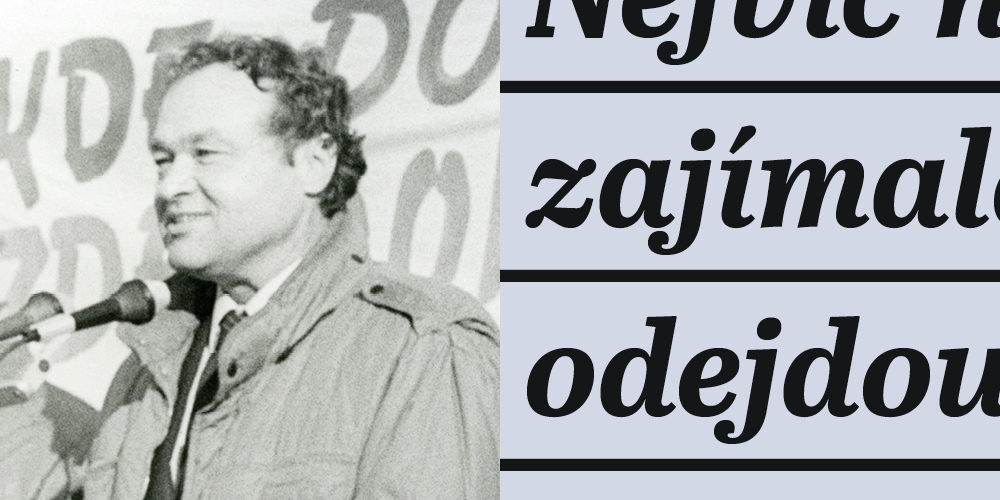
Bohuslav Fencl spent most of his life in Vysoké Mýto in eastern Bohemia. He grew up in a family of a former legionnaire and officer who was expelled from the army after February 1948. Thus, he was able to forget about studying. Despite his working-class occupation, he later worked his way up to a management position in the road infrastructure company Silnice Hradec Králové. After the occupation in August 1968, the Soviets established one of five of their divisional headquarters in Vysoké Mýto.
Because of the theft of construction materials by Soviet soldiers from the garrison in Vysoké Mýto, Bohuslav became the subject of negotiations with the security authorities and signed an agreement to cooperate with military counterintelligence.
“The building materials that the Soviet soldiers stole were eventually paid for by the Czechoslovak army,” he recalls.
During the Velvet Revolution, he was one of the founders of the Civic Forum in Vysoké Mýto. In January 1990, a march to the Soviet barracks took place in the town. “We walked to the housing estate, where we publicly announced our demand that the Soviet troops leave Vysoké Mýto as soon as possible. The demonstration was peaceful, the national anthem was sung. It was the biggest gathering I remember,” he says.
The last soldier left Vysoké Mýto in June 1990. Bohuslav Fencl held the mayor’s office for sixteen years, becoming the second longest serving mayor in the town’s history.
Departure
In the 1980s, communist regimes were collapsing economically and socially. Falling behind the free world could no longer be disguised, and citizens invoked their rights. Rumors of change were coming from the Soviet Union in the era of Mikhail Gorbachev. Our country had been ruled for a second decade by the same set of normalization apparatchiks, who until then had devotedly listened to their comrades from Moscow, but did not want to hear about so-called perestroika – reconstruction.
When the totalitarian regime in our country began to collapse in November and December 1989 under the enormous onslaught of civil unrest, almost 80,000 Soviet soldiers, on whose threat the local regime relied, remained in the barracks – they were ordered not to intervene. In February 1990, the new president, Václav Havel, arrived in Moscow for an official visit. The Soviets apologized for the occupation in August 1968, and the foreign ministers concluded an agreement on the withdrawal of Soviet troops from Czechoslovakia. The negotiations were attended by the MP and musician Michael Kocáb. On 24 June 1991, to celebrate the event, he organized a concert with his band Pražský výběr in Prague’s Sport Hall, with the world-famous rocker Frank Zappa as a guest, and the whole show ended with the symbolic departure of a dummy of a Soviet soldier in a helicopter. Three days later, the real “last Soviet soldier,” Eduard Arkadyevich Vorobyov, the commander of the Central Group, left our country. In total, 73,500 Soviet soldiers, 39,000 of their family members, 1,220 tanks, 2,500 infantry combat vehicles, 105 aircraft, 175 helicopters and 95,000 tons of ammunition left Czechoslovakia.


